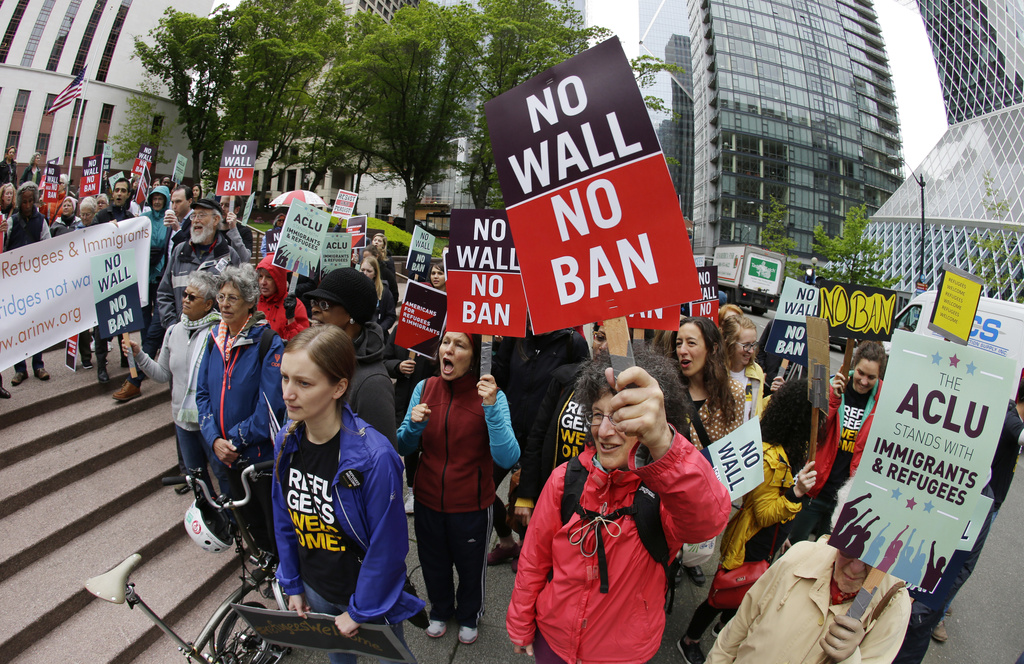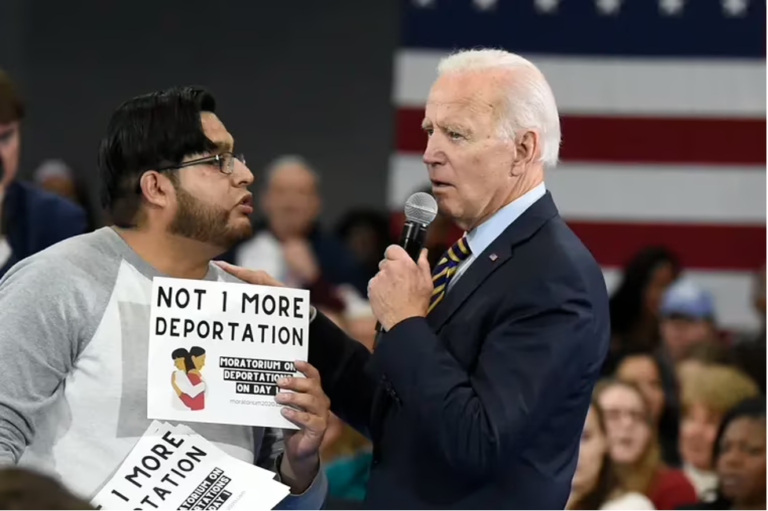
President Trump’s infamous travel ban was not about protecting national security — it was about fear, prejudice, and the unjust targeting of Muslims. On Jan. 27, 2017, Trump issued Executive Order 13769 to ban the entry of immigrants from a select group of countries during his first term in the White House. The order targeted citizens from eight countries, six of them primarily Muslim including Iran, Iraq, Libya, Somalia, Sudan, Syria, and Yemen. Although the ban was lifted by the Biden administration, Trump’s racist rhetoric has made a resurgence with his reelection and the recent reinstatement of Executive Order 13769 — this time with a list of a whopping 43 banned countries. While purportedly justified by national security, the renewed ban was a blatant act of discrimination and further cemented his legacy of Islamophobia. Further, the ban seriously threatens the U.S. economy and undermines America’s values of diversity and inclusion.
On the campaign trail in 2024, Trump told the crowd in St. Cloud, Minnesota, that once elected, he would “restore the travel ban, suspend refugee admissions, stop the resettlement, and keep the terrorists the hell out of our country.” Not only was referring to all immigrants from Muslim countries as “terrorists” blatantly racist, but also a potential threat to the widely known melting pot image of the U.S. as a hub of diversity and opportunity. Thousands of students and professionals migrate to the U.S. every year in hopes of pursuing higher education and seeking employment with visas. They now fear that their legal status in the U.S. could be revoked. With stricter immigration policies, renewing visas or securing permanent residency will become significantly more difficult. Some universities, including N.Y.U., sent a campus-wide email urging faculty, students, and other community members with visas or permanent residency status to delay any personal international travel during spring break.
Promoting this rhetoric again in American politics is a huge step back for the U.S. It fuels a climate of fear and division among people, subverting the values that America takes so much pride in: education, innovation, and technology. These repeated promises and offensive remarks that equate the entirety of a nation with terrorism will make America an inhospitable environment, even for those individuals with the descent of the countries directed at by the ban. This disregard for diversity and inclusivity will result in an irreversible blow to America’s global reputation.
President Trump claims his intent for the travel ban and similar policies is to strengthen national security by preventing potential terrorists from entering the United States. He asserted in a speech in 2023 that the ban’s reinstatement and expansion will restrict people from “anywhere that threatens our security.” This argument is inherently flawed. Strong national security relies on international cooperation, intelligence-sharing, and diplomatic relations, but all this has been tarnished by Trump’s discriminatory policies. The ban alienates potential allies, reduces collaboration with intelligence agencies in affected countries, and increases anti-American sentiment abroad.
By closing its doors to skilled immigrants, students, and potential allies, the U.S. risks weakening its global influence. Rep. Yassamin Ansari (D-W.A.) wrote a letter expressing the turmoil she and her family faced due to the ban during Trump’s first term: “Just a few years ago, my grandmother — an American citizen — died without ever getting the chance to see her sister again. The newly proposed Trump travel ban is disgraceful and discriminatory. It does nothing to make us safer, but instead hurts our economy and our national security while emboldening extremists.”
Additionally, President Trump promised significant changes to the U.S. economy. During his campaign, he pledged an “end to the devastating inflation crisis” and said that “prices will come down.” These vows were key to Trump’s victory. However, these promises directly contradict his proposed travel ban, ultimately harming the U.S. economy rather than strengthening it. By restricting immigration, Trump’s policy would deter international students, skilled professionals, and foreign investors. International students generate billions in revenue for universities and local economies, while tech, healthcare, and finance industries rely heavily on global talent. In a letter, a group of House Democrats led by Rep. Ansari wrote that “our nation’s prosperity depends on open, secure, and mutually beneficial engagement with the world, not isolation, fear, and discrimination towards outsiders,” further emphasizing the negative impact the ban will have on the job market, global trade, and the tourism industry. Instead of boosting the economy, the travel ban would stifle innovation and globalization, repel talent, and isolate the U.S. from a considerable portion of the global market, making it less competitive on the world stage. Overall, the effects of the travel ban will act against Trump’s initial wishes that he repeatedly expressed in his campaign to stimulate the U.S. economy.
Trump’s travel ban represents a step in the wrong direction, fueled by discrimination. Instead of enhancing the U.S. economy and security, it risks damaging U.S. international standing. The policy harms America’s reputation as a welcoming place for innovation and opportunity. If the U.S. hopes to remain competitive and prosperous, it must move away from exclusionary policies and continue to value the diversity that has always been integral to its success.
The Zeitgeist aims to publish ideas worth discussing. The views presented are solely those of the writer and do not necessarily reflect the views of the editorial board.



